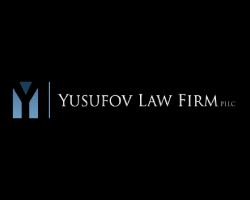In bankruptcy, you get a fresh start. You can prove your financial standing and emerge into the clear without having to pay back debts or return property that has claimed your good names. Tucson Chapter 7 Lawyers also gives you new options when dealing with creditors and lenders. You’ve probably heard about bankruptcy before, but what exactly does it do?
This article will explain everything you need to know about Reaffirming Secured Debt in Chapter 7 Bankruptcy. You’re legally discharged from paying off your debts when you file for bankruptcy. It’s an essential step towards financial freedom. If you can’t afford to pay your mortgage loan, filing for Chapter 7 bankruptcy may be the best option for paying off your debts. Let’s discuss reaffirmation.
What does Chapter 7 Bankruptcy Reaffirmation mean?
The reaffirmation process is a way to take care of one or more debts while keeping you under the bankruptcy court’s protection. A reaffirmation agreement provides a way to make your payments on an existing loan even if you’re in bankruptcy. It’s also a method to keep the property safe from creditors while using all available assets to pay that debt, including unsecured debts.
Reaffirming a debt is a way for you to say in writing that you will still owe it after your bankruptcy case ends. It helps your creditor to build up their lien on the collateral (which gives them the right to take the property if you fail to pay as agreed). You can reaffirm debts with other creditors who have liens against your property or debts that you have made before filing for bankruptcy. When you’re thinking about a reaffirmation agreement, your Tucson Chapter 7 Lawyers can help you make an informed decision.
Benefits to Reaffirmation In Chapter 7
Reaffirmation agreements are a way to keep your property and continue making payments on it even if you don’t meet with lender’s financial requirements. Reaffirmation agreements are also suitable for lenders because they eliminate the risk of foreclosure that comes with repossessing the collateral, which can be costly for lenders.
What Is the Good time To Enter into a Reaffirmation Agreement?
A lender will usually help you preserve a car or different property without submitting a reaffirmation settlement so long as you make your payment. It is a great way to move because if the lender repossesses the assets because you cannot make your payments; otherwise, you permit the car to go back to the lender after an accident; you may not be answerable for paying whatever further.
Reaffirmations agreements can leave you in debt after your case has ended. You should consider it only if:
- The collector insists on it
- It is the best manner to preserve assets you need,
- And you’ve got top purpose to agree with you may be capable of repaying the balance.
Reaffirming debt may be a helpful way to keep your property that’s worth significantly more than what you owe on it or additional credit. If you decide to reaffirm a debt, it’s usually worth asking the creditor to accept less than what you owe as full payment.
Keep Current on Payments You Wish to Reaffirm
Sometimes, a reaffirmation contract applies if you’ve fallen behind on your payments. Be sure to keep your payments before filing for bankruptcy. If you fall behind on your payments and do not bring your account current, the creditor can demand that you reaffirm your loan before agreeing to a reaffirmation contract.
Collateral vs. Secured Debt
When it comes to paying off debt, there are two main options: Collateral and secured debt. Learn more about each type of loan here!
Collateral is a crucial part of securing loans and credit cards. The lender might ask you to put up valuable property (such as a car, boat, or home) to guarantee that it will get paid if you fail to pay your bill.
When a creditor secures an asset with a lien, that lien is called “secured.” The secured creditor (the bank or other creditor) files a “secured claim” in bankruptcy court when it seeks reimbursement for the debt. If the court finds sufficient value in the collateral to meet the secured claim, the funds go first to the secured creditor and are applied to its payment.
Some instances of unsecured debt are Credit cards, personal loans and medical bills such as payday loans.
Conclusion
A bankruptcy attorney can help you understand what happens when you file for bankruptcy. Filing for bankruptcy is an essential step in getting back on track financially. Coming out of Chapter 7 is tricky. You might want to keep your property in Chapter 7 for a while. If you do, a reaffirmation agreement might be the way to go. But it might not be in your best interests. A Tucson Chapter 7 Lawyer can explain your options and help you make the right decision for you.

